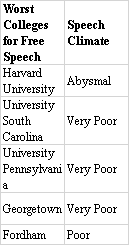Are You Sincere?
“Are you sincere?” is a question that resonated deeply enough with the American public to have been the title and theme of a song recorded 14 times, and that reached number three on the Billboard chart. The song resonated, I believe, because it portrayed a fundamental. issue in all interpersonal experience. In my Questioning & Answering book, I coupled sincerity with reasonableness to address those essential features of human discourse. There I suggest that in all important discussions wherein we ask a question, are asked a question, provide an answer, or receive an answer, we should consciously consider its sincerity and reasonableness. Among other considerations, sincerity and reasonableness must be contextualized for time, place, and person [That merely is one aspect of contextualizing for your internal context (body and mind) and your external context (everything outside your body and mind)]
Evaluate why the
questions and answers are being presented now, why they are being presented in
this particularsetting, who is presenting them, what your internal context is,
and any other relevant contextual elements within and outside of your body and
mind.
Anytime, anyplace,
anyone can question and answer about anything, but the questions and answers
that deserve our greatest attention and effort are those that are most
reasonable and sincere.
“Sincerity” means
that the speaker has no hidden agenda, especially no disingenuous or
manipulative one. Subjective sincerity
is the speaker’s honest confidence in that which they say. Objective sincerity is the sincerity level
that the average unbiased observer would attribute to the speaker. “Reasonableness” means the extent to which
the speaker’s comments reflect reality.
Subjective reasonableness is the speaker’s belief in the reasonableness
of their position. And objective reasonableness is the extent to which the best
available information supports the speaker’s belief.
As is obvious,
different questioning and answering environments demand different levels of sincerity
and reasonableness from each questioner and answerer. One certainly would hope
that a teacher in a classroom is as highly sincere and as highly reasonable in
their communications as possible. On the
other hand, one could forgive a friend at a sporting event if they were
moderately insincere and unreasonable, especially if they intended to be
entertaining rather than informative.

Comments
Post a Comment